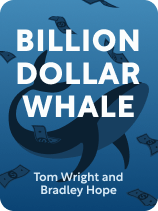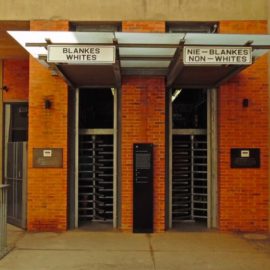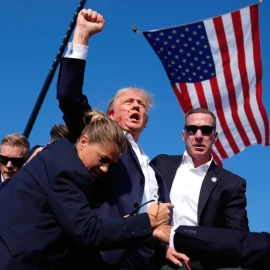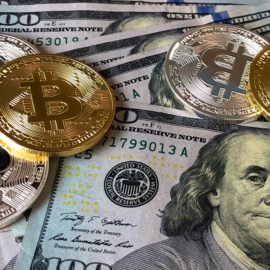

This article is an excerpt from the Shortform book guide to "Billion Dollar Whale" by Tom Wright and Bradley Hope. Shortform has the world's best summaries and analyses of books you should be reading.
Like this article? Sign up for a free trial here.
Looking for an explanation of the 1MDB Jho Low scandal? How did Low first become involved with 1MDB?
In Billion Dollar Whale, Tom Wright and Bradley Hope explain the 1Malaysia Development Berhad (1MDB) scandal, which exposed Malaysia’s corruption. At the center of the scandal was Jho Low, a fraudulent entrepreneur who worked with Prime Minister Najib Razak to siphon money from the 1MDB fund.
Read on for an overview of the 1MDB Jho Low scandal, according to Wright and Hope.
The 1MDB Jho Low Scandal Explained
The 1MDB Jho Low scandal rocked the Malaysian economy and exposed the country’s corruption. In their book Billion Dollar Whale, Tom Wright and Bradley Hope chronicle the rise and fall of Malaysian entrepreneur Jho Low and explain how the 1MDB scandal came to be. According to Wright and Hope, rather than siphoning money from a deal he was peripheral to, Low sought to gain control over a large fund for himself.
Low Set His Sights on a Malaysian Sovereign Wealth Fund
When Najib Razak became prime minister, he created the 1Malaysia Development Berhad (1MDB), a sovereign wealth fund. As Wright and Hope note, the fund’s stated purpose was to use government money to invest in green energy for Malaysia’s future. Through his experience with Mubadala, Low learned that involvement in a sovereign wealth fund would lend him unregulated access to larger sums of money than ever before.
In an attempt to leverage his influence with Najib, Jho Low proposed that in addition to funding green energy, 1MDB’s money could also be used as a political slush fund for Najib to pull from as needed. To further strengthen his position, Low connected Najib to his old friend, Ambassador Otaiba of the UAE, and through this connection was able to ensure that the Abu Dhabi government would invest alongside 1MDB in its future ventures.
(Shortform note: Jho Low and Najib’s misuse of the 1MDB funds has sparked international scrutiny of sovereign wealth funds. In the Philippines, a proposed new sovereign wealth fund has been criticized, with some fearing that it will be used and misused in the same ways as 1MDB. Criticism centered on the fact that the fund was originally going to be chaired by President Ferdinand Marcos Jr. (son of the deposed dictator), which would have created a conflict of interest, incentivizing Marcos to misuse state funds for political purposes, as Najib did.)
Thanks to his relationship with Najib, as well as his role in connecting Najib to Abu Dhabi, Low convinced Najib to put him in charge of 1MDB. Wright and Hope write that the relationship was mutually beneficial: With Low in charge of the fund, Najib could rest easy knowing that his co-conspirator would be able to assist him in moving money around. And, for Low, working closely with Prime Minister Najib meant that he was free to operate with no fear of intervention from the Malaysian government.
As he had in the past, Jho Low continued to operate in secrecy, taking no official role at 1MDB, instead staffing the fund’s board with associates who could lend 1MDB more legitimacy. Only Low himself, his associates, and Najib knew that Low was really in charge of the fund.
(Shortform note: Low may have felt especially protected by Najib because of Najib’s approach to government. Najib’s regime was so controlling that some authors have characterized him as an authoritarian. Critics of Najib note that he readily imprisoned political opponents and attempted to control Malaysian media as strictly as possible.)
Low Manipulated Financial Systems to Take Money From 1MDB
Wright and Hope note that Jho Low quickly set up a deal in 2009 between 1MDB and PetroSaudi, an oil company controlled by Prince Turki Bin Abdullah of Saudi Arabia. While Prince Turki’s domestic influence was limited, Low took advantage of his royal status to convince Najib to invest in the PetroSaudi deal. Low’s plan was for PetroSaudi and 1MDB to co-invest in an oil exploration venture—together the two funds would buy up land, look for oil, and sell what they found. The sum total of this investment was billions of dollars. Low was indifferent to whether or not the oil investment became successful. As Wright and Hope argue, Low’s real purpose was to quietly siphon money away from the massive transactions that the deal involved.
(Shortform note: While PetroSaudi was involved in Jho Low’s shady dealings through 1MDB, the exact extent of this involvement is still debated. Some experts have alleged that PetroSaudi used illicit funds from 1MDB to expand operations in Venezuela, advancing their own oil exploration and buying new drilling ships. While PetroSaudi’s lawyers have continually denied this, the allegations are still being investigated by the Malaysian legal system.)
With Najib on board, Low’s next step was to convince banks to both process the deal and to send Low a cut. However, sending large sums to an individual as part of a transaction between sovereign funds made some institutions uncomfortable. When the first few banks refused to work with Low, he adopted a new strategy. Instead of trying to ease suspicion, Low chose to avoid it altogether. According to Wright and Hope, if a particular bank scrutinized Low’s transactions, he would simply test the waters at other institutions until he found one that was willing to work with him without questioning him. Using this strategy, Low found a group of financial institutions and individuals who were willing to cooperate with him on the PetroSaudi deal.
(Shortform note: Low’s tactic of shopping out different banks was especially effective because of the large number of major financial institutions that take part in money laundering. Leaked US government documents show that many major banks engage in illicit transactions, including Deutsche, HSBC, and JP Morgan. With such an abundance of banks willing to get their hands dirty, it was inevitable that Low would find an institution that was ready to work with him.)
As the deal went through, Low once again used shell companies to take his cut of the funds. As a result of his strategic maneuvering, Low managed to get banks to wire hundreds of millions of dollars to offshore accounts he alone controlled.
(Shortform note: While Low used offshore accounts to hide his income from authorities, there are also plenty of legal reasons that offshore accounts exist. For example, companies that do business in multiple countries often use multiple bank accounts in different countries to make it easier to work with different currencies.)
Low’s Associates Ignored Wrongdoing Because They Stood to Profit
Wright and Hope write that throughout Jho Low’s tenure at 1MDB, he worked with powerful political figures such as Najib, Otaiba, Prince Turki, and bankers at well-known international firms such as Goldman Sachs and Coutts. All of these people knew Low was stealing money, and yet they all worked with him anyway because they wanted cuts of the money for themselves.
(Shortform note: According to some authors, the reason financial leaders engage in these types of unethical behaviors is that they prioritize profit over purpose. These authors argue that when individuals and organizations are only in business to make money and aren’t interested in providing a meaningful service, they’re more likely to behave unethically. By contrast, organizations that are organized around purpose and values are less likely to succumb to corruption.)
Low held up his end of the bargain. In the wake of the PetroSaudi deal, Low sent multimillion-dollar payouts to his associates and bought extravagant jewels for Najib’s wife, rewarding them for aiding him.

———End of Preview———
Like what you just read? Read the rest of the world's best book summary and analysis of Tom Wright and Bradley Hope's "Billion Dollar Whale" at Shortform.
Here's what you'll find in our full Billion Dollar Whale summary:
- A chronicle of the rise and fall of Malaysian entrepreneur, Jho Low
- The tactics Low used to succeed as a con man
- The political and financial context for Low's scheme






